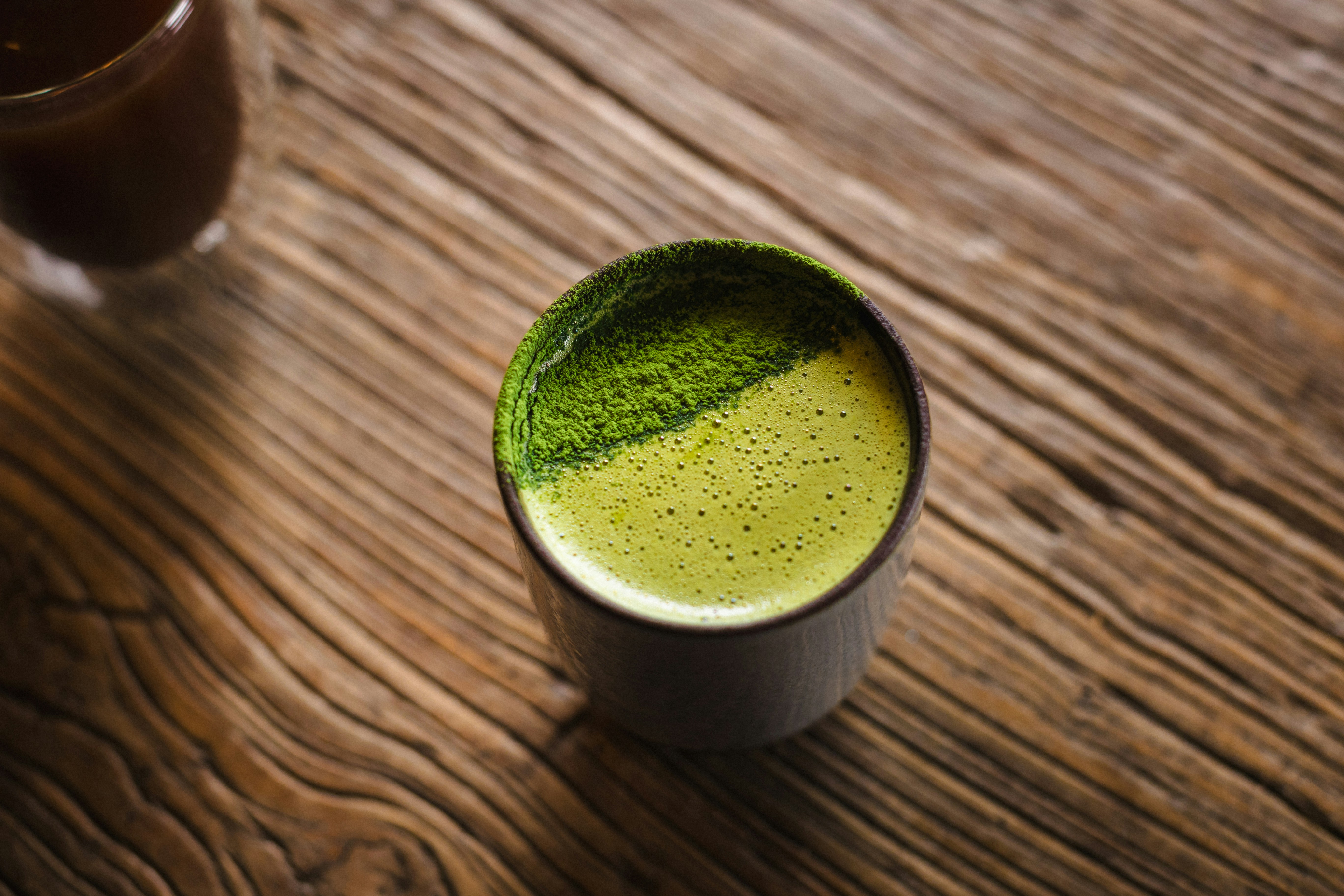The Magic of Tea
Tea, a beverage enjoyed by millions worldwide, transcends mere consumption; it embodies a rich history entrenched in various cultures. From ancient civilizations to modern societies, tea has played a pivotal role, not just as a source of hydration, but as a means to foster social connections, enhance mindfulness, and provide natural energy. Each cup carries narratives of tradition and ritual, connecting generations and bridging communities.
The origins of tea trace back to ancient China, where it was first discovered approximately 5,000 years ago. Legend has it that Emperor Shen Nong stumbled upon the infusion when leaves from a wild tree blew into his boiling water. This serendipitous event led to the exploration of tea’s potential benefits, marking the beginning of a long-standing reverence for this remarkable drink. Over centuries, tea culture evolved, spreading from China to other parts of Asia and eventually to the Western world, each region adding its unique touch to the tea experience.
Further, the quality and variety of tea available today reflect its journey across cultures. Green, black, oolong, and herbal teas each offer distinct flavors and energy-enhancing properties, enabling individuals to find their perfect match. Recent studies have shed light on the health benefits of tea, emphasizing its capacity to provide sustained energy without causing the typical crash associated with many caffeinated beverages. This is largely attributed to the balanced release of caffeine combined with other compounds that promote alertness while maintaining a state of calm.
Understanding tea’s historical significance not only provides insight into its multifaceted nature but also highlights its role as a sustainable and healthful alternative for those seeking energy boosters. As we embark on this exploration of tea, we invite readers to delve deeper into the multifarious benefits tea offers, enhancing energy levels and overall well-being while resonating with the traditions of its past.
A Brief History of Tea: Origins and Traditions
Tea, one of the most popular beverages worldwide, has its roots tracing back to ancient China, where it is believed to have been discovered as early as 2737 BCE. According to legend, Emperor Shen Nong inadvertently created the brew when some tea leaves floated into his boiling water. This seemingly innocuous event set the stage for tea’s rise to prominence in Chinese culture and its eventual spread around the globe.
In the centuries that followed, tea evolved from a medicinal drink to a daily staple. By the Tang Dynasty (618-907 CE), tea drinking was widely recognized and celebrated as an integral part of social interaction. The art of preparing and enjoying tea became formalized through practices such as the Gongfu tea ceremony, emphasizing precision and mindfulness. The emphasis on tea as a social lubricant reflects its role in fostering energy and vitality among individuals.
As trade routes expanded, tea made its way to other cultures, profoundly impacting their rituals and daily lives. In Japan, for example, Zen Buddhism fostered the practice of the Chanoyu tea ceremony, which integrates spirituality and aesthetics. This tradition enhances mindfulness while elevating the experience of sipping tea. In Britain, tea became a symbol of the upper class during the 17th century, with elaborate gatherings centered around its consumption, helping to solidify its place in societal customs. Each culture has adapted tea in unique ways, demonstrating its versatility and profound influence on human interaction.
Historical figures, such as the British Prime Minister William Ewart Gladstone, famously extolled the virtues of tea, crediting it as a source of sustenance and energy during times of stress. This historical connection to tea provides insight into its enduring appeal as a beverage that not only refreshes but also revitalizes. As tea continues to be enjoyed across the globe, its rich history remains a testament to its intrinsic ability to enhance energy without the dreaded crash. The traditions cultivated throughout history have woven tea into the fabric of human existence, ensuring its revered status persists.
The Science Behind Tea: Energy Without the Crash
Tea has been consumed for centuries, not only for its pleasant taste but also for its stimulating properties. Central to these energizing effects are several unique compounds found in tea, primarily caffeine, L-theanine, and polyphenols. Understanding how these components interact can shed light on why tea provides a smooth energy boost without the undesirable jitters or crashes often linked to coffee consumption.
Caffeine, a well-known stimulant, is present in varying amounts depending on the type of tea. Unlike coffee, which delivers a sharp surge in energy, tea’s caffeine content is supplemented by L-theanine, an amino acid that promotes relaxation. This combination is critical; while caffeine improves alertness and concentration, L-theanine balances its effects by reducing stress and anxiety. Research suggests that when taken together, these compounds create a unique synergy that enhances cognitive function without overwhelming the nervous system. This results in a more sustained and gentle increase in energy levels.
In addition to caffeine and L-theanine, tea is rich in polyphenols, which are antioxidants that contribute positively to health. These compounds help combat oxidative stress and inflammation within the body, promoting overall well-being. Emerging studies indicate that polyphenols may also play a role in improving mood and cognitive performance, further supporting the notion that tea consumption can lead to enhanced energy without the subsequent crash.
Numerous scientific investigations underscore the advantages of incorporating tea into one’s daily routine. Findings consistently demonstrate that individuals who regularly consume tea report higher levels of energy and improved focus. This benefit has been attributed to the harmonious interaction of caffeine, L-theanine, and polyphenols, as they effectively ward off the rapid energy spikes and dips commonly associated with other caffeinated beverages. Accordingly, tea stands out as a preferred choice for those seeking a balanced approach to boosting energy levels.
Diverse Types of Tea: Exploring Options for Energy Enhancement
Tea has been an integral part of various cultures worldwide, renowned not only for its rich flavor but also for its energizing properties. Among the numerous types available, green tea, black tea, and herbal infusions stand out as popular choices for those seeking energy enhancement. Each variety possesses unique qualities that can resonate with different preferences and lifestyle needs.
Green tea is often celebrated for its high concentration of antioxidants and catechins, particularly epigallocatechin gallate (EGCG). This specific compound is believed to enhance mental alertness without the jitters often associated with coffee. Green tea contains a moderate amount of caffeine, which acts as a natural stimulant, providing a gentle lift in energy while promoting focus and clarity. The cultural significance of green tea is profound in regions such as East Asia, where it has been consumed for centuries to enhance well-being and vitality.
In contrast, black tea is fully oxidized, resulting in a bolder flavor and higher caffeine content compared to its green counterpart. Varieties such as Assam and Darjeeling are particularly popular, both offering a robust energy boost. The presence of amino acids, notably L-theanine, within black tea helps to counterbalance caffeine’s stimulating effects, leading to a sustained energy boost without crashing. This makes black tea a favored choice for those needing a productive pick-me-up during busy afternoons.
Herbal teas, while typically caffeine-free, can also provide a natural energy enhancement through various ingredients. For instance, teas infused with ginseng, yerba mate, or peppermint have been traditionally used to invigorate the mind and body. These blends can suit a wide range of tastes and preferences, allowing individuals to engage with their favorite flavors while still achieving a boost in energy.
With such an array of options available, understanding the diverse types of tea can empower individuals to select the right variety that aligns with their energy enhancement goals and lifestyle choices.
Integrating Tea into Daily Life: Rituals for Energy Boost
Incorporating tea into your daily routine can serve not only as a delightful habit but also as a practical way to enhance your energy throughout the day. The strategic timing of tea consumption is instrumental in maximizing its benefits, as different types of tea offer varying levels of caffeine and natural energizing properties.
For instance, starting your day with a cup of green tea can help jumpstart your metabolism and provide a subtle energy boost without the jitters, thanks to its moderate caffeine content and L-theanine. Enjoying this first cup in the morning can set a tone of mindfulness and intention for the day ahead. Taking a few moments to savor the aroma and savor the warmth of the cup can enhance your mental clarity and focus.
Mid-morning, a refreshing herbal tea can be a perfect way to remain alert. For those looking to integrate tea rituals into their workday, consider brewing a blend like peppermint or lemon balm during breaks. Engaging in a brief mindfulness practice while preparing the tea can enhance your overall experience. Simply pause, breathe, and appreciate the natural ingredients; this simple mindful moment can help reset your mind.
Afternoon slumps are common, and this is a prime time for a cup of black tea, which provides a more robust caffeine effect. The ritual of steeping the tea leaves can be a meditative break amidst a hectic schedule. Alternatively, hosting a short tea gathering with colleagues can transform this energy boost into a communal experience, fostering connection while embracing the energizing effects of tea.
Incorporating these tea rituals throughout your day not only enhances your energy levels but encourages a more mindful approach to life. Over time, these small practices can have a significant impact on your overall well-being, allowing you to enjoy greater focus, calm, and productivity.
Health Benefits of Tea: Beyond Energy Enhancement
Tea, a beverage steeped in centuries of history, offers a multitude of health benefits that extend far beyond its traditional role as an energy enhancer. Research indicates that various types of tea, including green, black, and herbal, are rich sources of antioxidants, which are essential for combatting oxidative stress in the body. These antioxidants, notably catechins and flavonoids, help neutralize harmful free radicals, thereby lowering the risk of chronic diseases such as heart disease and cancer.
In addition to their antioxidant properties, certain teas have been linked to improved mental clarity and cognitive function. For example, green tea contains L-theanine, an amino acid that promotes relaxation without sedation, allowing for enhanced focus and concentration. This combination of caffeine and L-theanine creates a balanced energy boost, making it ideal for individuals seeking increased productivity without the jitters often associated with coffee.
Furthermore, tea can play a vital role in emotional well-being. Consuming tea is often associated with mindfulness and ritual, providing a moment of calm in a hectic day. The act of brewing and sipping tea can serve as a meditative practice, helping to reduce stress and anxiety. The polyphenols found in tea have also been studied for their potential mood-enhancing effects, contributing to improved mental health.
However, it is essential to approach tea consumption with moderation and mindfulness. While the health benefits of tea are numerous, excessive intake can lead to side effects such as insomnia and increased heart rate, particularly when high amounts of caffeine are involved. Therefore, individuals should be aware of their own sensitivities and aim for a balanced approach to tea consumption. By respecting these boundaries, one can enjoy tea’s myriad health benefits while optimizing their energy levels and overall well-being.
Spiritual Applications of Tea: A Journey Within
Tea has long been revered not just for its physical benefits but also for its profound spiritual dimensions across various cultures. In many traditions, the consumption of tea serves as a bridge to spiritual awareness, enabling individuals to connect more deeply with themselves and the universe. In particular, practices surrounding tea drinking often incorporate elements of meditation and grounding, allowing participants to cultivate mindfulness and achieve a heightened sense of presence.
In Eastern cultures, tea ceremonies embody a rich spiritual component where the act of brewing and serving tea becomes a meditative practice. For instance, in Zen Buddhism, the tea ceremony—known as “Chanoyu”—emphasizes simplicity and presence. Practitioners find tranquility in the careful preparation and tasting of tea, reflecting on each moment as a way to foster inner peace. This ritual not only enhances one’s focus but also encourages a deep appreciation for the simplicity of the moment, transforming an ordinary act into a profound spiritual experience.
Stories abound of individuals who have gained clarity and calm through their tea rituals. One individual recounted his journey, sharing how a morning cup of tea became a sacred ritual that grounded him amid life’s chaos. By incorporating breathwork and gratitude into his tea time, he discovered a sanctuary of tranquility from which he could face the day’s challenges. Similarly, another person described her evening tea routine as a time to reflect on the day’s events, finding comfort and insight in the act of sipping slowly and savoring each flavor.
The personal connections people create with tea as a spiritual practice do not merely enhance their physical energy; they also deepen their emotional and mental states. This journey within through tea encourages individuals to explore their spiritual dimensions, promoting a harmonious balance that transcends the physical benefits of the drink. As the mindful consumption of tea continues to gain favor around the world, it serves as a reminder of tea’s inherent ability to facilitate introspection and spiritual growth.
Cultural Rituals: Celebrating Tea Around the World
Tea has long been celebrated across various cultures as more than just a beverage; it embodies a rich tapestry of history, tradition, and social connection. In China, the tea ceremony, known as “Cha Dao,” integrates precise techniques and a deep appreciation of the beverage. This ritual emphasizes mindfulness as practitioners engage in a series of steps that enhance both the experience of enjoying tea and the connection between participants. The quietude of the ceremony encourages a communal atmosphere, fostering discussions that can generate a significant exchange of ideas and emotions, thereby enhancing one’s energy and spirit.
Similarly, Japan offers its own unique tea traditions through the practice of Chanoyu, or the Way of Tea. This tradition centers around matcha, a finely ground powdered green tea, and embodies a philosophy of harmony and respect. The ritual, which includes meticulously preparing and serving the tea to guests, emphasizes the importance of presence, leading to an invigorating experience that can strengthen communal bonds. Participants often report feeling energized not only by the tea itself but also by the shared moments and the sincerity of intention that accompany the practice.
Meanwhile, in Britain, the afternoon tea ritual offers a delightful blend of culinary enjoyment and social engagement. Not merely a meal, afternoon tea represents an important cultural gathering that brings friends and family together. The act of sharing fine teas, sandwiches, and pastries serves as a backdrop for lively conversation, helping to create a warm environment where relationships flourish. The infusion of tea in these gatherings enhances both the physical energy of participants and the emotional uplift that comes from connection, demonstrating how tea fosters unity and joy among individuals.
Conclusion: Sip, Reflect, and Energize
As we conclude this exploration of tea’s rich history and its potential to enhance energy levels without the accompanying crash commonly associated with other caffeinated beverages, it is vital to reflect on how this ancient drink can fit into our modern lives. Tea has been cherished for centuries, not only for its flavor and comforting qualities but also for its remarkable ability to stimulate our minds and bodies. This unique beverage allows for a moment of pause and contemplation, inviting its drinkers to slow down, sip, and truly appreciate each experience.
The journey of discovering various types of tea can also lead to personal revelations. From the invigorating green teas filled with antioxidants to the calming herbal infusions that support mental clarity, there is a diverse array of options available to cater to individual preferences and needs. Each cup can be a new experience, a new source of energy that uplifts the spirit without overwhelming the senses. By experimenting with different flavors and tea types, one can identify what resonates with them, crafting a personalized ritual that becomes an integral part of their daily routine.
Incorporating tea into your life not only enhances energy but also nurtures a deeper connection to a beverage steeped in tradition. As you sip, consider what the act of drinking tea can mean beyond mere refreshment; it can be a deliberate pause amidst the chaos of daily responsibilities. So, take the time to explore the vast world of tea, reflecting on its significance and potential in your life. Embrace the ritual of preparation and consumption as an opportunity to energize your day, fostering a holistic relationship with this treasured drink.







Leave a Reply